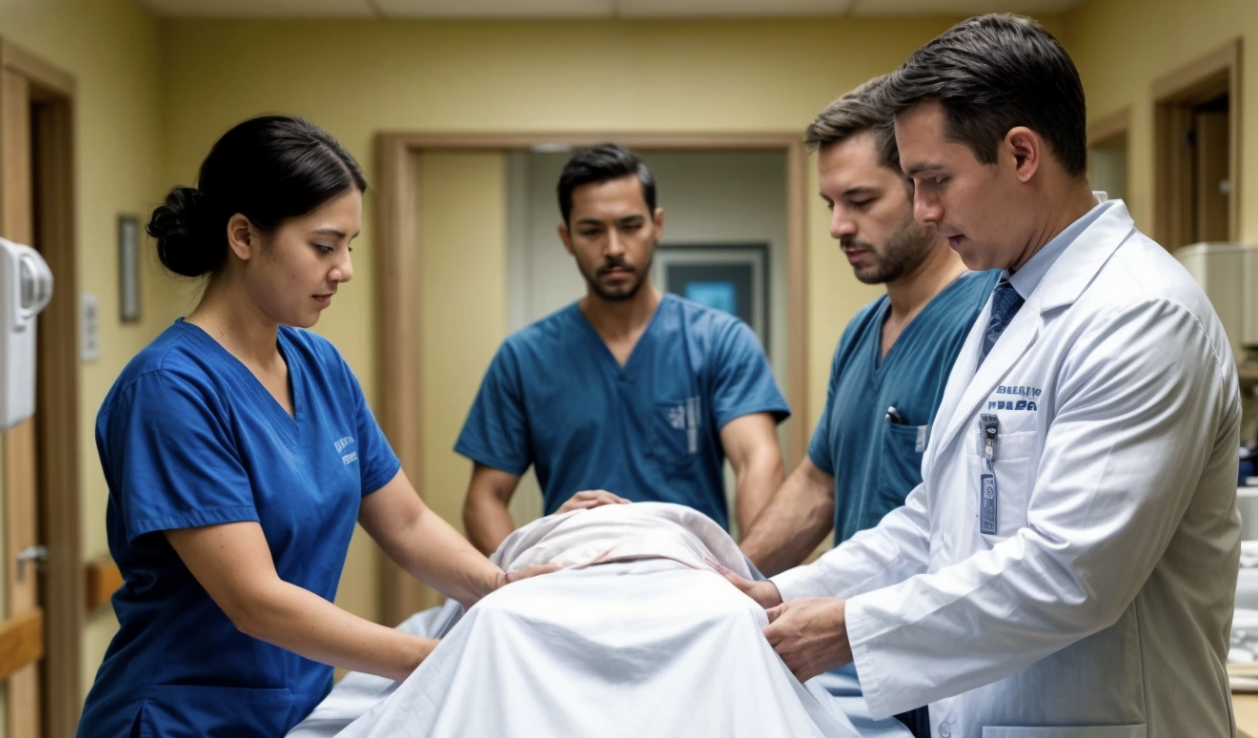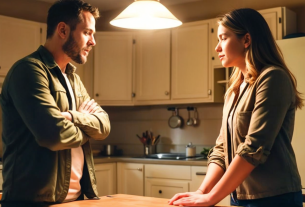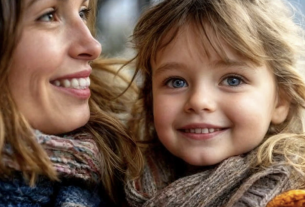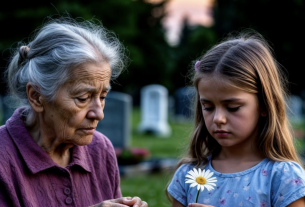In the very heart of the city, among noisy streets and towering concrete giants, stood one of the most prestigious and respected hospitals — a medical temple where every corridor breathed professionalism, and the walls held thousands of stories of recovery and loss. The clinic was renowned for its advanced equipment, top-class specialists, and impeccable reputation. But behind the facade of perfection hid a dark shadow — the shadow of the chief doctor, whose name made the staff’s hands tremble slightly and patients wish to disappear from his sight as quickly as possible.
Maxim Timofeyevich Kovalyov was a man with a flawless diploma, a cold gaze, and an icy heart. Once, he had been a gentle, kind student, capable of compassion. But power, like a poisonous fungus, had spread in his soul, poisoning everything that remained of the man he used to be. He wore his white coat like armor, and every word he spoke sounded like a verdict. The staff feared him, patients avoided him, and he, oblivious to this, believed they bowed to him out of respect. In reality — it was out of fear. And only a few understood: behind this armor hid a vulnerable, lost man who had long forgotten what humanity meant.
One gray, rainy day, when the sky seemed as dull as the mood of the medical staff, an elderly woman was brought into the emergency room. She was fragile as an autumn leaf, her face covered with wrinkles, but her eyes shone with an inner fire — a fire of dignity, warmth, and strength. The grandmother had been brought in complaining of severe abdominal pain. The diagnosis required urgent examination, but Maxim Timofeyevich, barely glancing at her, coldly said:
— An elderly woman. How old — eighty? Ninety? Her time has long passed. There’s no point wasting resources on those who are already at the threshold.
Nurse Olga, young, with lively eyes and a heart full of compassion, couldn’t hold back:
— But, doctor, there is a free bed in ward seven! We can accommodate her there.
— I know perfectly well what goes on in this hospital! — he sharply cut her off. — Let her lie in the corridor. She won’t live until morning — and the problem will be solved. And don’t waste time on old people who can no longer be of use. Better focus on those who really can survive.
Olga swallowed the lump in her throat. Working at this clinic was a dream for many, and losing her job meant being left out on the street. She silently nodded, but a spark of protest flashed in her eyes. Approaching the old woman, she saw her lying motionless, eyes closed. Her heart skipped a beat. But suddenly, the woman opened her eyes — clear as spring skies — and smiled.
— Don’t pity me, daughter, — she whispered. — I’ll get up myself. I don’t want to be a burden. Even if this is my last day, I will live it with dignity.
Olga helped her sit up, and together they slowly moved down the corridor. Every step was hard, but in this movement was a strength that could not be broken by pain or indifference. And in that moment, Olga understood: before her was not just a patient. This was a person who had lived a whole life, given it to others, and deserved warmth, not cruelty.
The next morning, Maxim Timofeyevich, as always, walked through the wards with an important air, adjusting his tie and unaware how his words left scars behind. Patients complained: “Nurse Olga is missing. Where is she?” — “Probably working somewhere,” he shrugged. “No time for sentimentality. This is a hospital, not a retirement home.”
But when he looked into ward seven, he saw a scene that filled him with rage. Olga was sitting by the old woman’s bed, feeding her with a spoon like a child, with such care that even the walls seemed to soften. The air was filled with silence, broken only by quiet words of gratitude.
— What are you doing?! — the chief doctor roared, bursting into the ward. — You should be in the procedure room! You disobeyed my order! This is not a kindergarten but a medical institution!
— We completed the ultrasound, — Olga calmly replied. — Grandma’s stomach is fine. But she’s hungry. And it’s my duty to help her.
— Let other patients feed her! — he shouted. — Most of them are just lying around doing nothing anyway!
At that very moment, a quiet but firm voice spoke:
— Maxim… you behaved more modestly during lectures.
Maxim Timofeyevich froze. Blood rushed to his face. He slowly turned around. Sitting before him was not just an old woman. It was Inna Vasilyevna — his former teacher, mentor, savior. The very woman who once pulled him out of academic expulsion when, young and reckless, he nearly destroyed his future career. She believed in him when no one else did. She said: “You can be a great doctor if you don’t forget that you are human.”
And he? He wanted to throw her into the corridor like useless trash.
Tears welled in his eyes. Shame burned him more fiercely than any burn. Suddenly he saw himself from the outside — arrogant, cruel, empty. And if not for Olga, if not for her humanity, he would have become a killer — not physical, but moral. He would have allowed a woman who once gave him a chance at life to die.
— Forgive me… — he whispered, dropping to his knees by her bed. — Forgive me, Inna Vasilyevna…
From that day on, Maxim Timofeyevich changed. Not immediately, but gradually. He began visiting the grandmother, talking with her, learning how she felt. And when she was discharged, he didn’t just see her to the taxi — he went home with her.
What he saw broke his heart. A tiny room in an old house, mold on the walls, a ceiling partially collapsed, furniture creaking with age. The refrigerator — empty. On the table — a cup of tea diluted with water. Inna Vasilyevna lived on a shoestring, on a pension barely enough for bread and medicine. She gave her life to science, to educating generations of doctors, and in return received loneliness and poverty.
Maxim didn’t say a word. He simply disappeared for a few days. Then he returned — with a crew of builders, bags of cement, paint, new furniture. He personally supervised the renovation. The walls came alive, floors stopped creaking, warmth and light appeared. He bought her groceries, medicine, even a small TV. Every week he came by, filled the fridge, sat with her over tea, reminiscing about student days.
And in the hospital, silence began — but not the kind born of fear, rather the kind born of respect. Maxim Timofeyevich no longer shouted. He listened. He helped. He smiled. The staff, amazed by the changes, gradually began to trust him. Patients felt they were spoken to humanely.
And all this — thanks to one old woman, one smile, one word: “Maxim…”
She not only restored his conscience. She restored his soul.
And in this — the greatest miracle.
A miracle that begins not with surgery, but with compassion.



